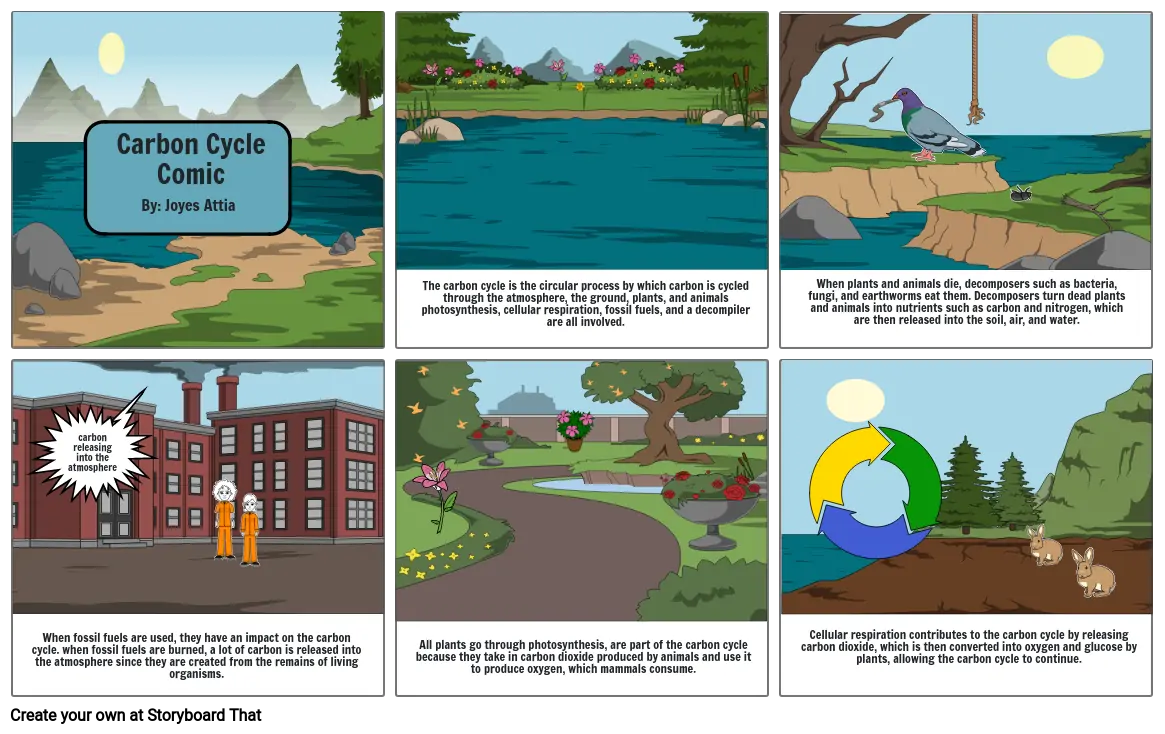Carbon Cycle Comic By: Joyes Attia

Storyboard Text
- By: Joyes Attia
- Carbon Cycle Comic
- The carbon cycle is the circular process by which carbon is cycled through the atmosphere, the ground, plants, and animals photosynthesis, cellular respiration, fossil fuels, and a decompiler are all involved.
- When plants and animals die, decomposers such as bacteria, fungi, and earthworms eat them. Decomposers turn dead plants and animals into nutrients such as carbon and nitrogen, which are then released into the soil, air, and water.
- carbon releasing into the atmosphere
- When fossil fuels are used, they have an impact on the carbon cycle. when fossil fuels are burned, a lot of carbon is released into the atmosphere since they are created from the remains of living organisms.
- All plants go through photosynthesis, are part of the carbon cycle because they take in carbon dioxide produced by animals and use it to produce oxygen, which mammals consume.
- Cellular respiration contributes to the carbon cycle by releasing carbon dioxide, which is then converted into oxygen and glucose by plants, allowing the carbon cycle to continue.
-
Over 30 Million Storyboards Created

